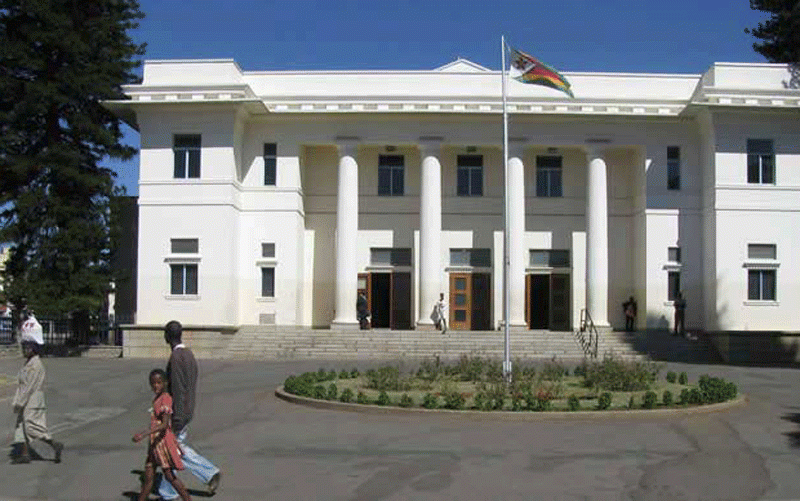
I respect a sense of opinion and our generation has been exposed to different forms of knowledge which have thus made us be an opinionated generation.
The basis of any opinion is always meant to build in as much as it may be associated with elements of ridicule in terms of approach.
In Zimbabwe almost everyday in the social media spaces and even the radio platforms people can now have the freedom of sharing their views on different matters.
These matters range from social, religious, political to art related issues. When it comes to art, this has become even more rampant as social media has become a useful platform for the expression of opinions and views because of its wide reach.
It is where individuals with influence by virtue of their following are able to share a piece of their mind or perspective with regard to a particular issue of concern and note.
We label such individuals as art critics and people who think that they know it all, yet in actuality their opinion is not based on mere assumptions but knowledge that has been substantiated by research and experience.
When art critics share their piece of mind or opinion pieces and views through posts or podcasts they tend to be often dismissed as pretentious for looking at things too deeply.
They are given the label which is cliché — that of being a self proclaimed expert overthinking a project that is minimalistic, and this has been a parody that has been existent in undermining the art capabilities of individuals with a view that can bring fruition and growth to the arts scene.
- Warrant of arrest canceled for illegal billboard accused
- Goblins ‘besiege’ school
- Vieira backs Mane for Ballon d’Or ahead of Bayern move
- The trial of Directors accused of erecting illegal billboard deferred again
Keep Reading
Well, we can view the consumption of art as something that is frivolous and they may be some self important critics who may also be driven by their own egocentrism to complicate their ideas or at times make the arts sector seem to be inaccessible.
A point of note is understanding that this exists in countless spheres of society and hence is not something that can have the propensity to undermine an entire practice.
Art critics in our context are usually aligned with gate keepers who are individuals addicted to controlling and having their way in the arts context.
These so called gate keepers are individuals who are purported to have connections and hence by virtue of that they have the knowledge of the arts industry and hence the arts sector is subjected to their opinion.
In as much this can be true, is not our society that is in need of new opinions that can help build and resuscitate the arts industry?
What we have to understand is that an art critic’s main goal is to observe the aesthetics and the contextualization of an artwork so as to form an opinion, and in the process come to a conclusion.
This has to take into cognisance that there is no single definition of art or forms of creativity as the simple way to understand this is from the expressive side.
The act of expression is something that is presented and also shared with others who then are subjected to form opinions from it.
Art criticism remains an important facet in having an understanding of art that instigates the development of the local arts scene.
In the practicum, and as an art critic too, I will take into context the issue of copy rights as it is actually a serious issue that many Zimbabwean artists were recently forced to put it into thought.
Taking someone’s work and making it yours is considered plagiarism and in the academic circles they use software to check for plagiarism.
In the light of the issue of copyrights, I witnessed a lot of social media posts which were aligned on opining about the issue, and they were insightful.
The case of originality is what we actually have to see more opinions on. It is a subject that has to trigger the thought on what constitutes the true identity of the Zimbabwean art space.
In as much as there are legalities to issues of copyrights, we have to learn about the issue, and the art space needs more of strengthening originality in approaches to art. If we embrace originality, we embrace the true essence of art.
I have opined deeply on how being original as an artist can enhance one’s exportability to a wider and more international audience.
If someone else reads my view which I have alluded above on the issue of copy rights they may either choose to agree or to disagree basing on their knowledge of arts and the area of expertise.
This refers to the fact that each and everyone of us is in actuality entitled to an opinion and a view with regard to what they think of an art piece or a pertinent issue that has an impact and effect on arts scene.
What makes art become something important is its ability to evoke a wide variety of responses. Remember there are artists who thrive by controversy, for instance, in Zimbabwe there have been examples of artists who have used sex tapes to climax into the spheres of the arts sector.
Some have used systems of political patronage to have a following and others by virtue of their art - they also get a following.
But a critical factor of note we should look at is that at times the artist’s intent and the perception of the viewer when it comes to a work of art may not match, and these become the instances that spark internalised and also externalised dialogue.
Art criticism is the practice of presenting questions and perspectives on a work or view point as per our case, and by result, encouraging contemplation and discussion.
We can not have a ghost town of an arts industry when there is no balance in terms of opinions and not giving everyone the opportunity to be able to opine.
It is important that art critics exist so that they patch up the loopholes and point out the areas of need and concern.
Such opinions stir up change which is needed for the growth of our industry, unfortunately many of us are stuck in the bliss of ignorance which is limiting.
Art is so many things, but is most powerful when it emotionally impacts its viewers, and in my approach to art I believe in its psychedelic effect where the listener has to feel its depth and message and originality.
This most often happens when an artwork evokes a social or cultural context which is representative of the artist, but in a great many cases we acclaimatise to the “wanna be” self and hence creating sub-standard art.
Art criticism can take the techniques, materials, or aesthetics of an artwork or exhibition and parallel it to greater discussions such as politics, race, religion, or gender. In Zimbabwe we have put across political connotations with regard to many artists attaching themselves to either links with the ruling party or the opposition.
The intersectional opinions when it comes to tribalism and the Harare factor from many Bulawayo creatives is also something hard to discuss on as it is a sensitive issue.
Gendered approaches in discussion of art opinions also remain something which is shrouded in obscurity. The arts industry needs art critics who help in being panelists for an art industry that will grow and develop.
The stagnancy in our art is because many artists do not want to see other artists grow and develop. They continually want to remain at the top and at helm enjoying the benefits and fame.
Art critics can help in examining the impact of the different social dynamics and their impact on the society at large.
Without art critics questioning or challenging local art scenes using comparisons with more developed nations,we are in a conundrum as we will remain stuck.
Remember that there is an interaction between creator and critic; which Is the basis of the philosophy or art as per my view. As an artist, I have people who critic my approaches and the radicalism I use by singing in the languages I use and the music sound I have infused.
I may defend my self but every criticism has to bring forth development and growth on the artist to improve their artistic product.
We are in a generation where people can create art movements which can defy the art critics, because every country has its own critic of art who is renowned by virtue of sensible opinion and expertise.
- Raymond Millagre Langa is a musician, poet, orator, independent researcher and founder of Indebo edutainment Trust. You can follow on Facebook @Millagre Ray Langa, on X you can follow on #Millagre Langa, email. millagrepapito@gmail.com or indebotrust@gmail.com










